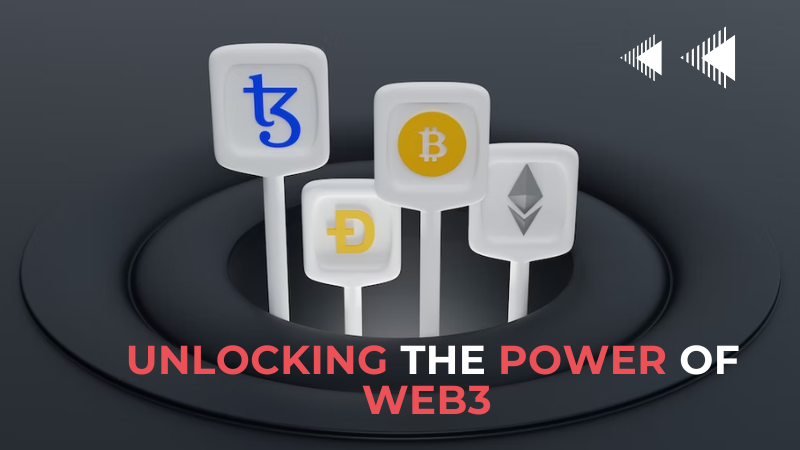In the past few decades, the internet has revolutionized the way we interact with the world. From online shopping to social media, it has brought us closer together and made our lives easier. However, the internet as we know it is changing. It is the next evolution of the internet and it is set to change everything we know about the internet.
What is Web3?
It is the next generation of the internet. It is a decentralized and distributed network that aims to provide a more secure, transparent, and efficient internet. The main difference between Web3 and the current version of the internet (Web2) is that Web3 is built on top of blockchain technology, which is a decentralized ledger that records transactions.

Designed to give power back to the people by eliminating intermediaries and creating a more trustless environment. It aims to create a world where users have full control over their data and where there is no central authority controlling the internet.
How does Web3 work?
It is built on the decentralized technology of blockchain, which allows for secure and transparent transactions without the need for intermediaries. The key difference between Web3 and Web2 (the current state of the internet) is that Web3 is a decentralized network, whereas Web2 is a centralized network. In other words, Web3 is not controlled by a single entity or organization, but rather is a network of interconnected nodes, or computers, that work together to maintain the system.
One example in action is the blockchain-based platform, Ethereum. Ethereum allows developers to build decentralized applications (dapps) that run on the Ethereum blockchain. These dapps can be anything from social media platforms to financial applications. Because they are decentralized, there is no central authority controlling the platform, making it more secure and transparent..
What are the benefits of Web3?
Web3 offers several benefits over traditional web platforms, including:
- Decentralization: One of the key benefits of Web3 is its decentralized nature, which means that there is no single point of control or failure. This provides greater security, privacy, and resilience against attacks, censorship, and data breaches. Examples include blockchain-based networks like Ethereum, which allow for decentralized applications (dApps) to be built on top of them.
- Trust and transparency: Enables trust and transparency by utilizing technologies like smart contracts, which automate and verify transactions between parties without the need for intermediaries like banks or lawyers. This reduces costs and risks associated with traditional financial transactions, and increases accountability and transparency in supply chains and other industries.
- Ownership and control: Gives users greater ownership and control over their data and digital assets. With Web3 technologies like decentralized identity and storage, users can store and manage their data and assets securely and privately, without relying on centralized platforms like Facebook or Google.
- Interoperability: Designed to be interoperable, meaning that different networks and protocols can communicate and work together seamlessly. This enables greater collaboration and innovation across industries and sectors, and avoids the silos and fragmentation of traditional web platforms.
- Innovation and growth: It is a hotbed of innovation and growth, with new startups and projects emerging every day in areas like decentralized finance (DeFi), non-fungible tokens (NFTs), and more. Web3 offers the potential for new business models, revenue streams, and value creation that were not possible before.
Overall, Web3 has the potential to transform the way we interact, transact, and create value online, and to empower users with greater control, ownership, and privacy over their digital lives.
How will Web3 change the internet?
It has the potential to change everything we know about the internet. It will create a more decentralized, transparent, and efficient internet that is not controlled by any central authority. This means that users will have more control over their data and will be able to interact with the internet in new and innovative ways.

What are the challenges facing Web3?
One of the main challenges is scalability. Because blockchain technology is still in its early stages, it can be slow and expensive to process transactions. Additionally, because there is no central authority controlling the network, it can be difficult to resolve disputes.
Another challenge is adoption. Because it is such a new technology, it can be difficult to convince people to adopt it. Additionally, because it is so different from the current version of the internet, it can be difficult for people to understand.
Conclusion
Web3 is the next evolution of the internet and has the potential to change everything we know about the internet. It is designed to create a more secure, transparent, and efficient internet that is not controlled by any central authority. While there are challenges facing Web3, such as scalability and adoption, the potential benefits are vast. As we continue to see the development of Web3 applications and technology, we can expect to see a shift in the way we interact with the internet and the world around us.


